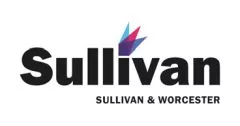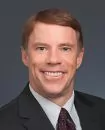S&W, in conjunction with the World Association for Decentralized Energy (WADE), recently released our EDGE Advisory: Distributed Energy Finance Report for May 2016. EDGE examines energy macro-trends in distributed generation through articles and expert contributions focusing on market direction, policy updates, and innovations in finance.
Distributed generation (generally referring to energy that is produced at or near the point where it is used) has been a growing trend for nearly a decade, but has seen recent acceleration with the confluence of improved technologies, greater levels of financing, and supportive public policy. These developments are layered upon long standing utility infrastructure and regulatory frameworks. State policymakers generally have mandated that utilities are ultimately responsible for providing power, particularly at the distribution market level. Yet, to support growth in renewable energy and distributed generation, policies like net energy metering (compensating DG at the retail rate of electricity for over-generation) have proliferated. These incentive policies have been largely successful, and have contributed substantially to the growth of rooftop and small commercial solar.
With distributed generation markets maturing, we are entering into a transitional phase as utilities focus on the added stress new technologies and resources place on their grid assets and the further complexity of grid management to account for bi-directional and intermittent power. Battles over net metering are raging in several public service commissions across the country. Certain states, such as New York in its Reforming the Energy Vision (REV) docket, are entirely revamping the way customers will buy, sell, and consume energy at the granular level. In the meantime, market forces have severely punished business models that have been overly aggressive, most notably yieldcos such as SunEdison, with resulting impacts at the project development and finance level.
This month's EDGE Advisory addresses these current issues and more. It provides market intelligence for active participants and new entrants, ranging from policy and regulatory developments to financing and structural choices. Featured topics include:
- Wither Yieldcos? How Better Methodologies Can Improve Yieldco Prospects
- The future of NY-REV: A New Model for Distributed Energy in New York
- Net Metering in Play in New York
- Anaerobic Digesters Give Universities Food for Thought
- Mid-Atlantic States and Distributed Generation
- Federal Update
- Report from the States
- Global Perspective: COP 21—Clean Energy After Paris
The content of this article is intended to provide a general guide to the subject matter. Specialist advice should be sought about your specific circumstances.

